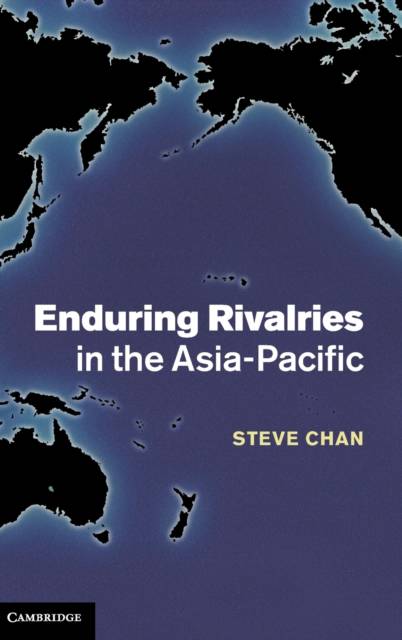
- Afhalen na 1 uur in een winkel met voorraad
- Gratis thuislevering in België vanaf € 30
- Ruim aanbod met 7 miljoen producten
- Afhalen na 1 uur in een winkel met voorraad
- Gratis thuislevering in België vanaf € 30
- Ruim aanbod met 7 miljoen producten
Zoeken
Omschrijving
Enduring rivalries recurrently ensnare states in militarized disputes and wars. Are they poised to intensify in the Asia-Pacific, a region characterized by regime and cultural differences, territorial contests, and competing nationalist and regime claims? It is often argued that these conditions and recent power shifts are likely to lead to conflict escalation and contagion, especially in Sino-American relations. Steve Chan's book challenges this common view and argues instead that Asia-Pacific rivalries are likely to be held in abeyance. He suggests that the majority of leaders in the region wish to base their political legitimacy on their economic performance rather than popular mobilization against foreign enemies. Economic interdependence and political multilateralism have restrained and in some cases reversed rivalries. Although Asia-Pacific states will continue to quarrel, Chan argues that their relations are more stable today than at any other time since 1945.
Specificaties
Betrokkenen
- Auteur(s):
- Uitgeverij:
Inhoud
- Aantal bladzijden:
- 246
- Taal:
- Engels
Eigenschappen
- Productcode (EAN):
- 9781107041431
- Verschijningsdatum:
- 30/09/2013
- Uitvoering:
- Hardcover
- Formaat:
- Genaaid
- Afmetingen:
- 147 mm x 229 mm
- Gewicht:
- 476 g

Alleen bij Standaard Boekhandel
+ 345 punten op je klantenkaart van Standaard Boekhandel
Beoordelingen
We publiceren alleen reviews die voldoen aan de voorwaarden voor reviews. Bekijk onze voorwaarden voor reviews.











